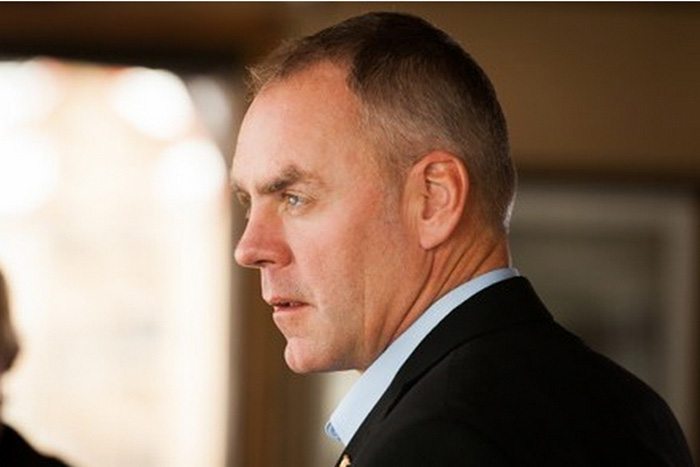Quibbles Over Anti-Choice Purity Reveal GOP Extremism in Montana Primary
Even conservative candidates who support popular anti-choice measures like 20-week abortion bans might fail to satisfy a radically anti-choice Republican party, as U.S. House candidate Ryan Zinke is discovering in Montana.

Bans on abortion after 20 weeks of pregnancy have become a favorite strategy of the anti-choice movement to chip away at reproductive rights. But even conservative candidates who support these bans might fail to satisfy a radically anti-choice Republican party, as U.S. House candidate Ryan Zinke is discovering in Montana.
Zinke, fundraising frontrunner in the GOP primary, has a 100 percent voting record with Right to Life Montana, according to Gregg Trude, the group’s executive director. But Zinke is still being attacked as not “pro-life” enough by all of his major primary challengers, and he recently had a public spat with an anti-choice interest group over his position on abortion.
Three female representatives from the Concerned Women of America Legislative Action Committee told reporters that during a meeting with Zinke in March, he told them he supported legal abortion up until 20 weeks. Zinke flat-out accused the women of lying, and they accused him of lying in return.
“Ignoring questions and calling women liars are not the best ways to defend a stance, but for Ryan Zinke that may have been his only option,” said Andrea Marcoccio, executive director of the Montana Democratic Party, in a statement.
Zinke’s opponents have hammered him for getting a 65 percent rating from NARAL Pro-Choice Montana in 2009. The pro-choice group gave Zinke points for his votes against extreme “personhood” bills that would have defined life beginning at conception, thereby outlawing abortion and possibly some forms of contraception or in vitro fertilization.
Trude of Right to Life Montana said he advised Zinke at the time not to vote for the “personhood” bills because they were too extreme. The question of how extreme anti-choice politicians should be has been a subject of debate even for National Right to Life, which recently booted Georgia Right to Life for refusing to back exceptions for rape and incest in a national 20-week abortion ban.
The Montana Republican Party platform says it supports “the preservation of innocent human life at every stage of life beginning at conception through natural death.” But Zinke indicated a more realistic view of restricting abortion to the Montana Standard, saying that “Roe v. Wade is not a legislative issue” and that the best ways to make abortion rare are “education and prevention,” including birth control, as well as restricting government funding for abortion care.
Three former state Republican chairmen have also publicly criticized Zinke on choice, a move regarded as unusual by political observers and the party’s current chairman.
“There is a pretty deep concern among mainstream Republicans that [Zinke] is just not in the mainstream of the Republican Party,” Rick Hill, one of the former party chairs to criticize Zinke, told the Helena Independent Record.
With prominent “mainstream” or “establishment” Republicans like Mitch McConnell defeating their Tea Party opponents in primaries this year, the dominant media narrative has declared the Tea Party to be losing. But as some observers have noted, and as Montana’s GOP primary shows, the Tea Party’s influence is often more about enforcing right-wing ideological purity for the so-called establishment candidates than getting self-identified Tea Party candidates elected.
